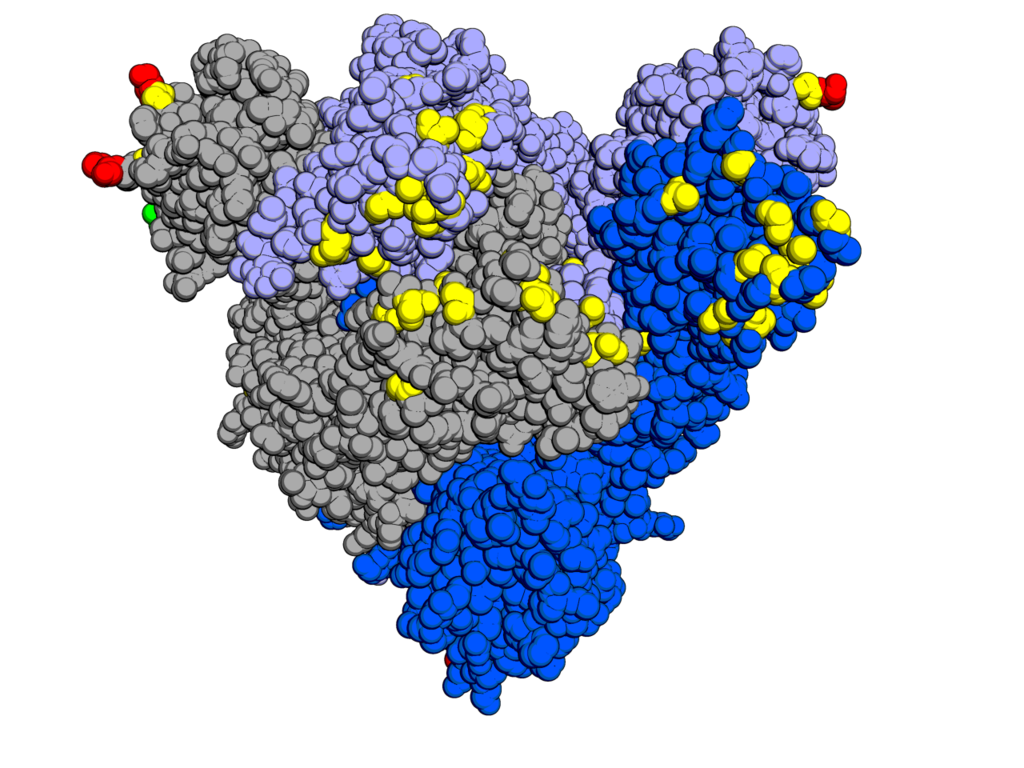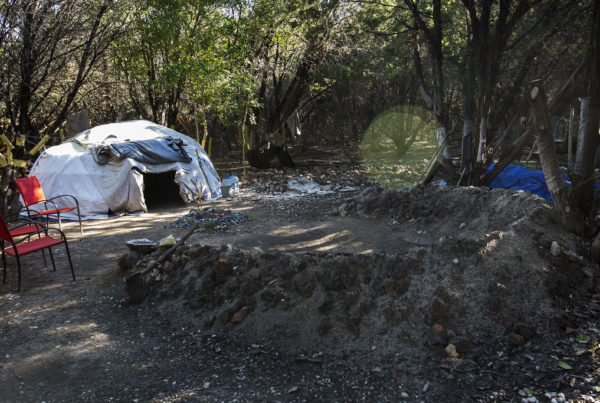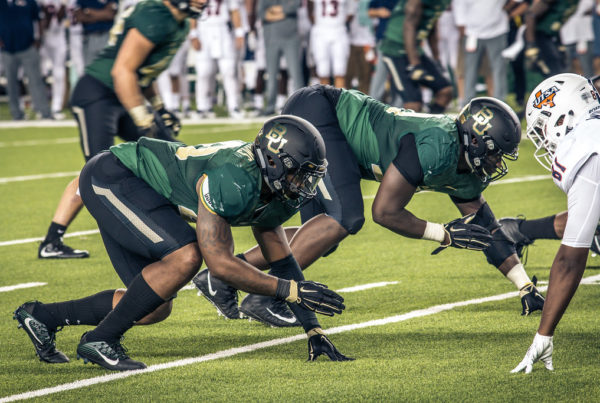There are growing concerns about the potential risks of the omicron variant of COVID-19. Countries around the world are closing their borders once again after word from the World Health Organization about the new variant. Scientists are racing to find out whether existing vaccines will be effective against it.
Over the weekend, Dr. Peter Hotez, codirector of the Texas Children’s Hospital Center for Vaccine Development, said we should “assume that it’s likely in the U.S.”
Rebecca Fischer is an assistant professor of epidemiology and biostatistics at Texas A&M University School of Public Health, and Catherine Troisi is an infectious disease epidemiologist at the University of Texas Health Science Center at Houston. They discussed the current status of the COVID-19 situation in Texas, along with risks potentially posed by the omicron variant.
Listen to the interview above or read the transcript below.
This transcript has been edited lightly for clarity:
Texas Standard: Why are so many health experts really concerned about this omicron variant?
Catherine Troisi: The concern is that we are seeing with this variant 30 mutations in the spike protein, and that’s the important part of the virus that attaches to cells and also that our bodies make immunity to. So because there have been so many changes in this spike protein, we are concerned – although we don’t know yet – that the vaccine may not be as effective, that therapeutics may not be as effective. We are seeing, at least in South Africa, an increase in reinfections. So the concern is this virus just looks very different from other variants we’ve seen before.
Heading into the holidays, Texas COVID stats were considerably better than they have been for months. Do you sense that this new variant that has brought on new concerns or something else?
Rebecca Fischer: You are right. Our numbers in Texas, like other states in the South and Southeast are lower than they have been. But that’s not the case across the nation. And what we’ve seen with this virus is these peaks and valleys, and the numbers increasing and decreasing. It’ll be really important to watch, as we’ve just come out of Thanksgiving. It will be important to watch those numbers, as well going into the next couple of weeks to see if that remains the case.
What we have seen in some of the other states is that those numbers have come down and plateaued at a high. We are still having a high number of cases and a high number of hospitalizations and deaths. And that some of those states have seen those numbers increase. So we should be really cautious here in Texas and continue to practice those preventive and protective behaviors that we have become so familiar with.
People continue to question the efficacy of things like masks. In part, that’s because we’re seeing the spread of the flu lately. If masks can’t protect people from the flu, how effective are they against COVID?
Troisi: There have been many studies showing that masks help prevent infection. They’re not perfect. The latest study did a meta analysis, where you look at a lot of different studies and combined them, and showed that masks were 53% effective in preventing transmission of the virus. So that’s great. Masks are an easy prevention to take. But that’s why we talk about a Swiss cheese model of defense. It’s not just masks. It’s masks plus social distancing, plus, importantly, getting vaccinated. It’s taking more than one precaution.
There was also a study just published – a poll showing that about three out of four Americans say that their lives have returned to normal. I flew home late last night from a Thanksgiving with family and in the airport, I swear at least 25% of people were not wearing masks or had them under their nose. I don’t know what good people think that does. The virus comes in and out of your nose, as well as your mouth. We’re tired of the pandemic. Everybody is. But the virus is not done with us as this new variant shows, and we need to still be taking those precautions.
Where do we stand with flu shots and COVID boosters? And what do Texans need to know about those? What about that third COVID shot, for example?
Fischer: Texans need to get it, especially as we are moving into the [holiday] season. A lot of people are hitting that six month, or the three month post mark. What the data is showing is that the booster is helping. It’s revamping that immune response that we’re looking for. Flu shots – get it at the same time, get a doubleheader.
We saw a few flu cases last year. That may not be the case this year. Flu waxes and wanes continually, so that’ll be really important.
And above all, get the kids vaccinated. Vaccination in kids is hugely important. COVID has become one of the major causes of death in children in this nation – one of the most dangerous and deadly of all the vaccine-preventable diseases. But what’s really important is that COVID is now counted among vaccine-preventable diseases. So let’s get the kids vaccinated. The kids’ vaccination status is going to make our gathering safer. They’re going to make our household safer and keep [children] in schools.
What sort of precautions should people be taking as family gatherings start to occur and how concerned are you that this might contribute to a resurgence of COVID?
Fischer: I’d say that we should continue those protective behaviors. Many times we know our group, we know our family, we know our vaccination status. Perhaps we know the behaviors well for each other. And it might be safer to drop those masks, certainly. And in a group where we are all vaccinated, that transmission and infection has a lower frequency. And so the likelihood that we’re passing it around to each other at a gathering is smaller. But we don’t always know about the individual’s risk. And certainly, if we feel sick or feel we’ve been exposed or we’ve been told we’ve been exposed or have been in a public situation where we don’t know the infection status of everyone around us that we can test and stay away from others that we could make sick.
Troisi: If everybody who can be vaccinated, including children, [gets vaccinated], then the odds are much lower that transmission will occur. However, if you have family members who are not vaccinated, you have to weigh the risk. Is grandma coming along? And if she got sick, it might have very serious consequences. Are you in an area where there is a high transmission like Michigan – some of the other northern Midwest states? So you need to weigh the risks versus the benefits. And there are mental health benefits to getting together. But if serious consequences are going to arise in somebody who is at this gathering, should they get infected, then you have to think about it carefully.













